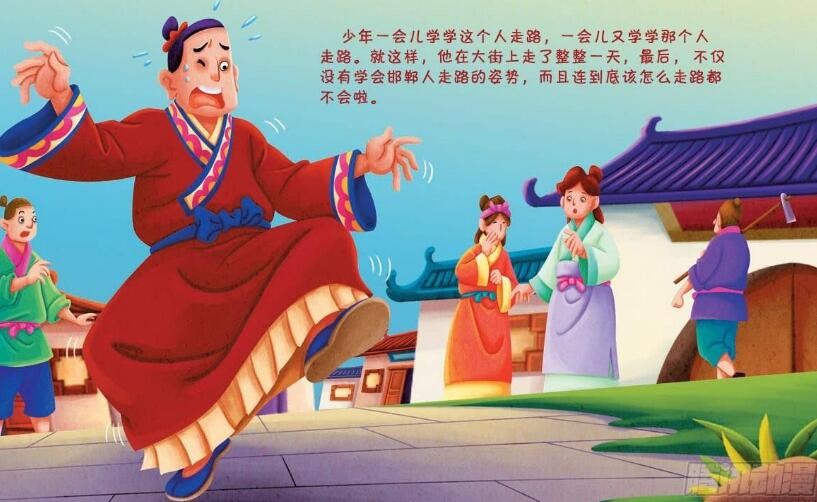Example usage: 学习外国经验,不能邯郸学步,连我们自己成功的经验都丢了。
Translation: When learning from the experience of other countries, you can’t simply copy slavishly, or even the experience of our own successes will be lost.
Some language stuff
Couple of proper nouns here, especially place names you’ve probably never seen before, because this story is set over two thousand years ago in the Warring States period (475-221 BC), so the places mentioned no longer exist. We’ve got the State of Zhao (赵国), we’ve got the Zhao capital of Handan (邯郸), and we’ve got the State of Yan (燕国).
One of the words that comes up frequently here is 姿态 zī tài, also 姿势 zī shì, which both basically mean “posture” or “pose”, the way someone’s body is positioned or the way they carry themselves.
Another important word is 模仿 mó fǎng, to imitate.
Understand those words, and you’ll get the gist of the story.
One sentence structure to look out for is 受到…的影响. This means “to be influenced by… .” So, you could say 受到妈妈的影响, or “She is influenced by her mother.” The thing that our protagonist here is influenced by is a little harder to understand, but I will leave it up to you to sort it out. If you can’t, ask in the comments.
Want something easier?
Du Chinese has a big catalog of easy HSK 1 and HSK 2 texts for ultra-beginners. There are quite a few free practice lessons, but CRP readers get 10% off on paid accounts using the discount code CRP10.
邯郸学步
据说,赵国的首都邯郸的人走路的姿态很好看,动作非常好看。
燕国有一个少年听到这个传说,非常羡慕邯郸人,就走了很远的路去赵国,想学习邯郸人走路的方法。刚开始,他整天站在街头,仔细研究每个人走路的姿态,再慢慢模仿他们,可是都没有成功。
后来,他想可能是受到过去走路习惯的影响,所以,他决定要忘掉以前走路的方法。从那时候起,他更专心研究邯郸人走路的姿势,不过,再怎么努力他还是学不会,最后他只好放弃。
可是,因为他把以前走路的方法忘掉了,已经不知道该怎么走路,只好一路爬着回去。当别人看到他的样子,都忍不住笑他。




